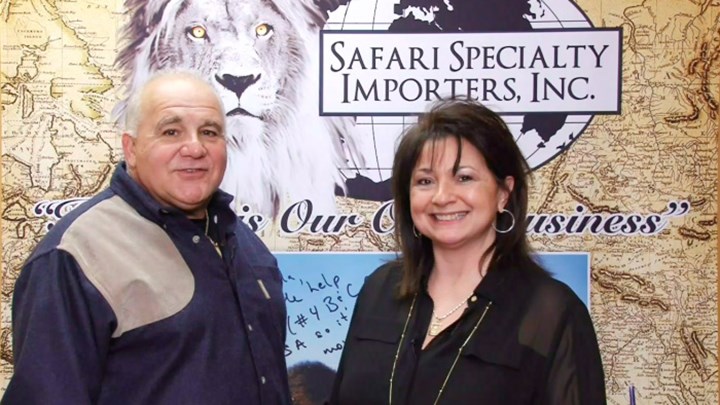
by Max Prasac - Tuesday, December 11, 2018

You are a responsible hunter. You practice with your chosen hunting firearm to a level of competence, you are a member of the NRA, you renew your hunting license every year and you take your craft seriously. You consider poaching reprehensible and wouldn’t be caught dead participating in an illegal hunt in any way imaginable. Then one day you book a dream hunt in South Africa. This is one you’ve been saving your pennies for and you’re heading over with a few of your buddies. When you get there your outfitter, being the good guy that he is, says he can save the group some money on shipping trophies. That’s good news to your ears as this is an expensive hunt, and any savings is a good thing. So, you and your friends hunt and at the end of your safari, your outfitter fills out only ONE hunting register (hunting license) in the name of only one hunter, and puts everyone’s animals on one registry. His promise to you is that by shipping all trophies in one box, to one destination, you will save significantly on shipping charges. However, what he’s conveniently not telling you is that you will be violating the Lacey Act (a U.S. conservation law that prohibits the sale or trade of wildlife that has been illegally hunted, transported or sold).
Worldwide hunting laws require a license to hunt legally. If your outfitter completes the license in the name of only one hunter (for the claim of saving you money), the others in the group who have not hunted legally are, therefore, poaching by definition. Ignorance of the laws will only take your defense so far. The outfitter pockets the license money that is literally a part of every hunting package sold. But those without licenses aren’t the only ones committing a crime. The license holder signs a U.S. Fish and Wildlife Service Declaration for Importation or Exportation of Fish or Wildlife (Form 3-177) where he/she signs “under penalty of perjury that the information furnished is true and correct,” making him/her an accessory to poaching. No one walks away unscathed if caught, though you did not intentionally break the law. The mistake will come at a cost much greater than your supposed saving on shipping charges.
This is an epidemic in the hunting industry and very prevalent in South Africa in particular. To make matters worse, most U.S. brokers and taxidermists turn a blind eye to this all too common illegal practice and are blatantly assisting the hunter in breaking the Lacey Act, which is a felony. Unfortunately, much of the industry is complicit and some of the unintentional consequences are providing ammunition to the anti-hunting, animal rights extremist community. To them, hunter equals poacher, so why prove them right? It’s too far to travel and too expensive to get caught in this web of illegal activity. Why ruin a great experience and the subsequent memories? Make sure that your license is actually your license at the close of your safari.
The effort to draw attention to this growing epidemic is being spearheaded by Robert and Rosella Quartarone of Safari Specialty Importers, an outfit that deals only with the disposition of your trophies and making sure they get to you efficiently and legally—and that you remain stress-free in the process. As hunters, Robert and Rosella actually have skin in the game and want to protect your hard-earned trophies and prevent you from falling into this trap. Safari Specialty Importers is advocating on behalf of the hunter for his or her protection. A pound of prevention beats a ton of legal fees.
E-mail your comments/questions about this site to:
[email protected]
Proudly supported by The NRA Foundation and Friends of NRA fundraising.
